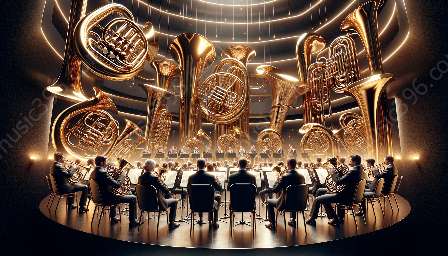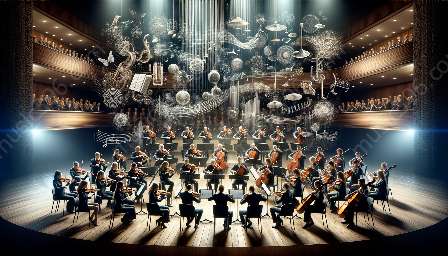Introduction
Understanding the critical relationship between orchestration and acoustics in the concert hall is essential for composers, conductors, and performers. This topic cluster aims to delve deep into the intricate connection between orchestration and acoustics, exploring how these elements influence interpretation and performance, as well as the broader implications for orchestration as a discipline.
Understanding Orchestration
Orchestration is the art of writing music for an orchestra, encompassing the selection and arrangement of instruments, as well as the distribution of musical voices within an ensemble. It involves understanding the capabilities and limitations of each instrument and creating a balanced and harmonious blend of sound.
Exploring Acoustics in the Concert Hall
Acoustics refers to the science of sound and how it behaves in different environments. In the context of the concert hall, acoustics play a crucial role in determining how sound waves interact with the space, audience, and performers. Factors such as the hall's design, materials used, and the positioning of surfaces all contribute to its acoustic properties.
The Relationship Between Orchestration and Acoustics
The relationship between orchestration and acoustics is multi-faceted. The orchestration choices made by composers are influenced by the acoustical properties of the concert hall in which their music will be performed. Composers must consider how the sound produced by the orchestra will be perceived and amplified in a specific acoustic environment.
Conversely, the acoustic properties of a concert hall can impact the interpretation and performance of orchestral works. Conductors and performers must adapt their approach based on the acoustics of the venue, adjusting dynamics, phrasing, and balance to account for the hall's reverberation and clarity.
Implications for Interpretation and Performance in Orchestration
The critical relationship between orchestration and acoustics has significant implications for interpretation and performance. Understanding the acoustic characteristics of different concert halls enables composers, conductors, and performers to tailor their artistic decisions to the specific environment, enhancing the audience's listening experience.
Furthermore, awareness of acoustics allows for nuanced and informed interpretations, highlighting the interplay between orchestration and the sonic properties of the performance space. This awareness encourages a dynamic and responsive approach to orchestral works, fostering creativity and innovation in performance.
Conclusion
The relationship between orchestration and acoustics in the concert hall is a fundamental aspect of the musical experience. By critically analysing this relationship, we gain insights into the interdependent nature of these elements and their impact on interpretation and performance in orchestration. Composers, conductors, and performers alike can harness this knowledge to enrich their musical endeavors and create memorable performances that resonate with audiences.





























